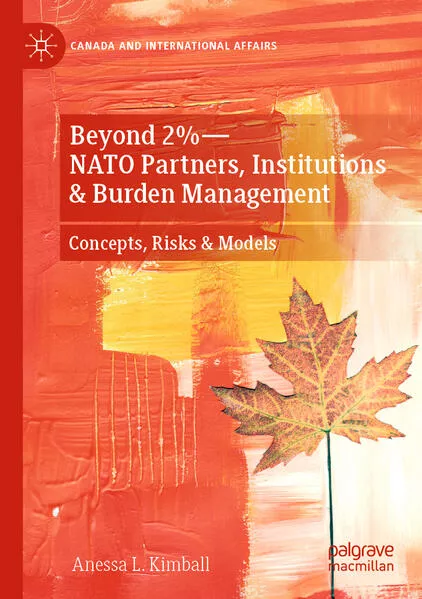
- Publikationen ca: 3
- Fragen & Antworten
Anessa L. Kimball
Anessa L. Kimball is Director of the Center for International Security at the École supérieur D’études Internationales and Professor in the Department of Political Science at Université Laval, Québec City. Professor Kimball is also the Co-Director of Security for the Canadian Defence and Security Network, a SSHRC partnership network.
Beyond 2%—NATO Partners, Institutions & Burden Management
This book advances North Atlantic Treaty Organization (henceforth, NATO) burden analysis through a decomposition of the political, financial, social, and defense burdens members take on for the institution. The overemphasis of committing a minimum of 2% of member state Gross Domestic Product (GDP) to defense spending, as a proxy indicator of alliance commitment does not properly reflect how commitments reduce risks should Article V be invoked through attack (i.
Beyond 2%—NATO Partners, Institutions & Burden Management
This book advances North Atlantic Treaty Organization (henceforth, NATO) burden analysis through a decomposition of the political, financial, social, and defense burdens members take on for the institution. The overemphasis of committing a minimum of 2% of member state Gross Domestic Product (GDP) to defense spending, as a proxy indicator of alliance commitment does not properly reflect how commitments reduce risks should Article V be invoked through attack (i.
Beyond 2%—NATO Partners, Institutions & Burden Management
This book advances North Atlantic Treaty Organization (henceforth, NATO) burden analysis through a decomposition of the political, financial, social, and defense burdens members take on for the institution. The overemphasis of committing a minimum of 2% of member state Gross Domestic Product (GDP) to defense spending, as a proxy indicator of alliance commitment does not properly reflect how commitments reduce risks should Article V be invoked through attack (i.


